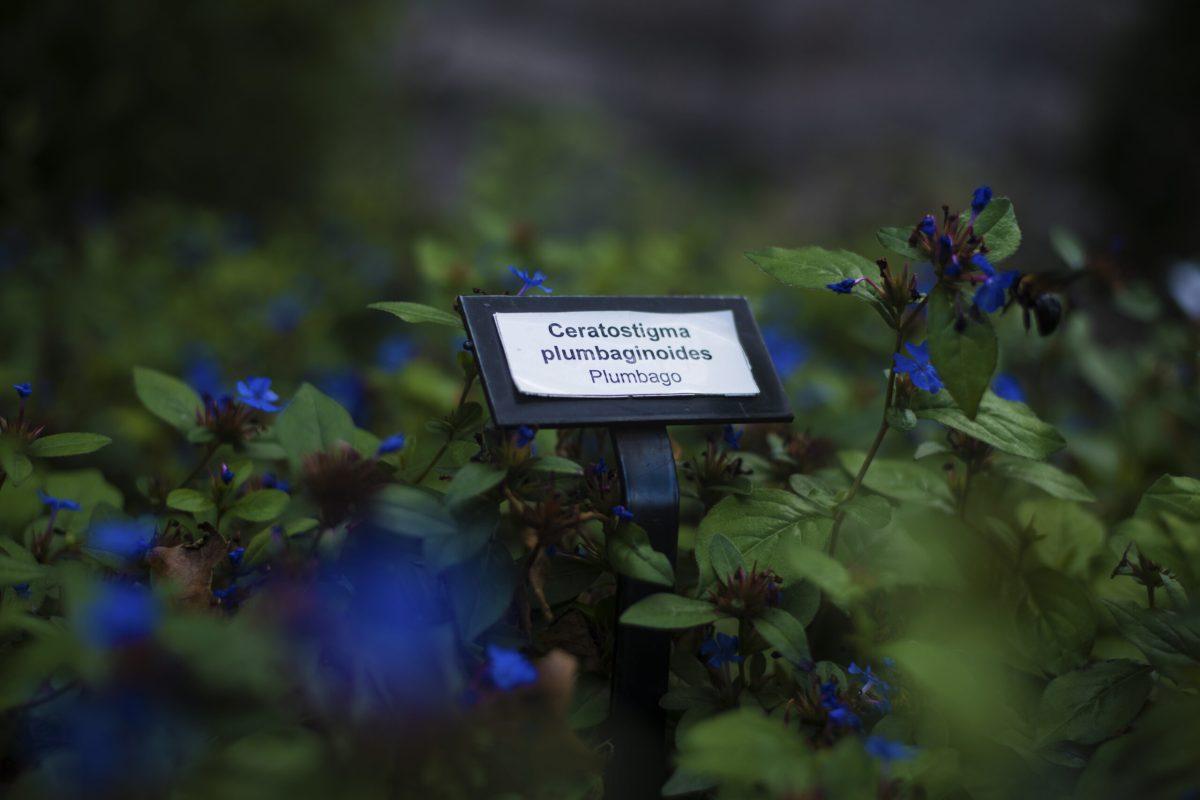
Have you ever noticed small signs under the trees or flowers on campus? Usually with scientific names displayed, these markers exist because MU’s campus is officially recognized as a botanical garden. Since 1999, the university has met all of the requirements to be a member of the American Public Gardens Association. You can plan a guided tour through school grounds, donate annually and pay to name trees, benches and even gardens.
With spring nearly here, the Mizzou Botanic Garden staff is prepared.
“For us, things are seasonal and you get into a routine year after year,” horticultural manager Jenna Rozum said. “For example, in the spring we are cleaning up beds, cutting down grasses, fertilizing and seeding the turf.”
However, the staff of the Botanic Garden plays an important role all year round.
“The fall is dominated by leaf cleanup, and in the winter is when we do most of our mulching across campus,” Rozum said. “We are also responsible for the coordination of snow removal on campus.”

The Mizzou Botanic Garden occasionally needs volunteers for special events and occasions; however, it does have a staff of specialists for regular maintenance. Although it is public, part of its resources come from private ends. For example, part of the university’s annual budget provides public funding, and other donation programs provide private funding.
“The gardens that we have named are funded by a combination of our general revenue account budget for basic care and private giving or endowments for any materials costs, signage or improvements,” garden Director Pete Millier said. “The sources for private giving to support these gardens come from sources other than our tree and bench programs and could be from fundraising events or activities, corporate gifts to the garden or philanthropy by individual donors.”
The garden also has programs such as Friends of the Garden. Anyone can be a member and donate through an annual or lifetime membership. Friends of the Garden members benefit from discounts on admissions to attend conferences and classes sponsored by the garden, are invited to special events and granted free entrance to Powell Gardens, Kansas City’s botanical garden.
“At the end of the semester, the students give Friends of the Garden a tour and talk about what they learned in their class,” said Karlan Seville, MU Operations communications manager.

The garden also acts in the academic life of students, providing research material for a number of classes and improving learning with empiric experiences.
“Each year, we work with faculty to provide experiential learning opportunities for students,” Seville said. “We gave the Honors College materials culture class a tour of the garden, and Candace Galen’s capstone biology class students study specific plants in the garden and journal about them throughout the semester.”
The Mizzou Botanic Garden has a mission to support students not only academically through research and extension opportunities, but also in economic development, Seville said.
“To this end, the Garden is to serve as a public resource providing educational opportunities through the collections, display, interpretation and conservation of plants suited to central Missouri in a manner which inspires, educates and delights visitors of all ages,” according to the garden’s mission statement.
_Edited by Alexandra Sharp | [email protected]_